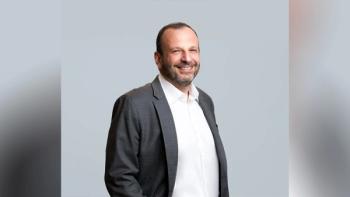
Expanding Access to CAR-T: Dr. Greg Frost
EXUMA Biotech's Dr. Greg Frost talks about his work making CAR-T cell therapy readily accessible and affordable.
Greg Frost, Ph.D., is a scientist, researcher, entrepreneur, and co-founder of two biotechnology companies. Currently, he is the Chairman and CEO of EXUMA Biotech Corporation, a clinical stage biotechnology company discovering and developing CAR-T therapies for liquid and solid tumors.
As a young entrepreneur in 1999, Frost co-founded and secured the initial capital investment for Halozyme Therapeutics, a public biotechnology company focused on oncology biologics and medication delivery. While at Halozyme, he brought the founding platform technologies to the company and led the R&D efforts from discovery through FDA approval for a number of biotechnology products. He was named Chief Scientific Officer in 2002, and CEO in December 2010. Subsequently, Forbes named Dr. Frost one of America’s 20 most powerful CEOs.
After leaving Halozyme in 2014, he led the Health Sector of Intrexon Corporation, a multinational public biotechnology company, where he was responsible for expanding the oncology franchise, and gene and cellular-based therapies for orphan diseases. He has authored multiple scientific peer-reviewed and invited articles, and is an inventor on key patents supporting FDA-approved biologics.
Pharm Exec caught up with Dr. Frost to talk about making CAR-T cell therapy readily accessible and the speed at which his rapid point of care (rPOC) platform is designed to deliver these therapies.
PharmExec: Can you talk about what inspired you to start a second biotechnology company after achieving success in oncology biologics at Halozyme?
Greg Frost: When I started Halozyme in San Diego back in 1999, it spun out of Sidney Kimmel Cancer Center. I used to joke when I left in 2014 that it was the longest postdoc on record. We looked at the technology we were building and saw the pieces that could come together to help some of the most challenging issues in adoptive cellular therapy as it relates to solid tumors, which are safety and efficacy. At the same time, we were thinking about how we could make an IV to subcutaneous conversion approach of autologous CAR-T as we did with antibody therapies. These incremental changes that can make it easier for patient access and safety is something that was very appealing to me. My fascination in oncology is something that centers on trying to apply novel science to improve the care of patients, both from the standpoint of not only efficacy, but also patient access.
The number of companies entering cell therapy development and the speed of investment in R&D certainly underscores the potential for cancer patients. Yet there remain many challenges…
First, I’d like to note that our industry has made tremendous progress over the last decade. What we’ve been able to achieve scientifically in autologous, or patient centered CAR-T therapies, in certain leukemias and lymphomas was at one point unthinkable. Now we have two FDA-approved cellular therapies. Yet the expense of these systems and their complexity for administration, when you add in hospital costs, can cost the payer well over one million dollars when everything comes together. And while efficacy is phenomenal in many circumstances, safety is still a concern and requires a lot of care and challenge. Is the product safe enough, so that after you administer the CAR-T, you can send the patient home? Also, can you skip or simplify the lymphodepleting process, which is essentially the removal of existing T cells before the administering the CAR-T, to “make space” for the CAR-T cells to expand and grow in the body? It’s not an optimized experience, as it often produces challenges outside the later cytokine release storms that are also a big issue. So, the cell therapy programs are going to have significant challenges in the long run, unless they can improve the process, which is precisely what we’re doing at EXUMA.
Let’s talk about your technology platform, rapid point of care. What makes this CAR-T therapy distinctive in such a crowded cell therapy space?
The rapid point of care, or rPOC platform that we’ve been working on, I think has a potential to dramatically reduce both the cost of CAR-T production and greatly simplify delivery of it to the healthcare system. And I think as an industry if we’re not able to do both, in the end CAR-T will be a dream deferred because the ability to get a product out is essential to getting it to all the cancer patients who need it. We think our approach, which could leverage the existing oncology infusion clinic infrastructure within an autologous product derived from the patient, could achieve efficacy through a much more defined path. Pre-clinically we’ve shown, and presented at AACR 2019, that in animal models, we can administer the subcutaneous CAR-T product in less than 12 hours’ time vein to vein, without the lymphodepleting process, which could be a huge breakthrough. This is compared to other processes, which may involve a prolonged hospital stay. Eliminating an extended hospital stay alone will dramatically reduce the cost to patients, increasing accessibility.
You are developing CAR-T products to treat liquid and solid tumors. What makes solid tumors harder to treat?
There are three things that are different between liquid and solid tumors for CAR-T. First, the risk of on-target, off-tumor toxicity, or potential reactivity of the CAR-T cells with normal tissues expressing low levels of the CAR-T target. The second issue is the heterogeneity of many solid tumors, wherein a target may not be found in the 100% of the cancer cells, thereby allowing for what is called “antigen escape” whereby tumor cells that do not express the target antigen escape elimination by the targeted therapy. The third issue is the hostile tumor microenvironment of many solid tumors, where the cancer becomes its own “organ” and can resist entry of the immune system. EXUMA’s logic-gate technology leverages the unique nature of the TME to amplify the CAR-T signaling when the CAR-T cells are near the tumor. In other words, we use one of the negative TME attributes as a way to turn our CAR-T cells “on.” In this manner, we can more safely target antigens that are present on normal tissue, as the CAR-T cells will remain “off” when not near the tumor.
Many biotech companies have experienced delays in the clinical trial process since the onset of COVID-19. How has EXUMA been affected?
To a large extent, EXUMA has been very fortunate. We experienced about a two-and-a-half-month delay on some programs, but we also stayed nimble in managing our research and development activities around COVID-19 to minimize impact. Operations in Asia were impacted severely from January through March. Meantime, our US offices were going full force. Now here in the US, we are still working largely remotely, while the laboratories in Shanghai and Shenzhen are back online.
It is encouraging to see nearly two-thirds of our team in Shanghai and Shenzhen back at work, on the other side of this virus. Still we are mindful that the US is battling COVID at full speed. We have certain policies in place. For example, we have only one person in a laboratory at a time with a signup policy.
We remain truly inspired by the teams of researchers and scientists working to develop treatments and possibly a vaccine for COVID-19 within a timeframe that no one would have expected before.
How do biotech companies in the development stages survive, or even maintain business, during these uncertain times?
Biotech is long journey. The path from idea to compound to clinical investigation to regulatory approval to launch to ultimate profitability to that product is a journey that few people have taken from beginning to end. In fact, most people never actually see the entire process. In the end, there are only so many molecules that can be made in one’s life in such a fashion. It’s inevitable along this journey that there will be things that occur in the future that you’re not anticipating. This is often one of reasons that people in biotechnology say the one thing that is most important for the industry as a whole is having stability. Planning requires stability. And the more volatility that exists, the harder it is to actually get through that journey without having to completely revamp your plans.
There are a number of things that you realize when you take a look at the journey. First of all, when you go from molecule to medicine, you come to experience things and see certain patterns of periods. You go through these cycles a number of times. Working through drug development in the midst of global crises is something that is inevitable for biotech. In fact, we should all get used to it because if you actually hang on long enough to develop a medicine from beginning to end, you will inevitably face some form of global crisis along the way. The unexpected events, the macros as we may call them, are things that have happened and will happen. Looking back at the last 20 years, you will see examples that exist from 9/11, to the 2008 financial crisis, and now today with COVID-19.
With the first company I founded, raising capital through 9/11 in a very challenging economic environment was a learning experience. Many people forget that there were very few biotech IPOs occurring in 2002 and 2003. Many people had to adapt their business models to survive. A number of specialty pharma companies had to rapidly develop programs because they had to demonstrate to investors that they could achieve something of meaningful value under a much shorter time horizon. The returns might not have been as good, but the companies could survive off the initial injection of capital and get through key regulatory and clinical inflection points. Today, there may be a perception looking at the markets that in fact biotech companies have an endless source of capital. There is nothing that can slow us down. But of course, events like today’s pandemic are enough to go in and create significant turbulence on the journey.
What is your vision for the future in cell therapy?
I think that the approach we’ve taken, while very different from some other approaches in developing CAR-T technology, is starting to show tangible progress. I’m very passionate about the work our team of scientists and researchers are doing. I think ultimately, if successful we could make a big impact in advancing patient care and that this may be relevant for the next 20 years.
For more information on EXUMA Biotech,
Newsletter
Lead with insight with the Pharmaceutical Executive newsletter, featuring strategic analysis, leadership trends, and market intelligence for biopharma decision-makers.




